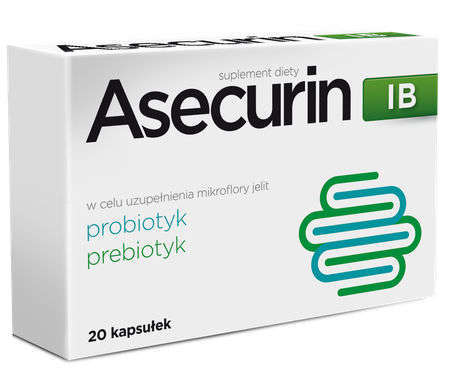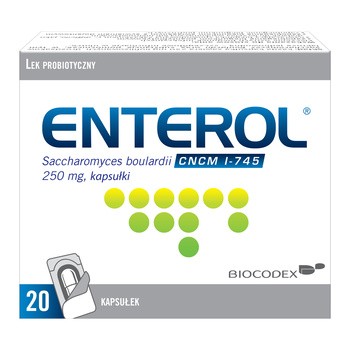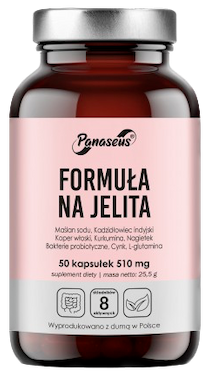Synbiotic (vs probiotic) - what it is, how to use it, in pregnancy and for the gut
A synbiotic is a combination of prebiotics and probiotics in one supplement.


Learn more about our editorial process
.

Learn more about our editorial process
.

Learn more about our editorial process
.

Learn more about our editorial process
.
Why you can trust us
Articles on Natu.Care are written based on scientific research, data from government websites and other reliable sources. The texts are written in cooperation with doctors, nutritionists and other health and beauty experts. Articles are reviewed before publication and during significant updates.
.Learn more about our editorial process
.Information about advertisements
Content on Natu.Care may contain links to products from the sale of which we may receive a commission. When creating content, we adhere to high editorial standards and take care to be objective about the products discussed. The presence of affiliate links is not dictated by our partners, and we select the products we review ourselves completely independently.
.Learn more about our terms and Conditions
.Probiotic supports the gut, prebiotic supports probiotics, and synbiotic is the... synergistic combination of these two ingredients. As a result, it has a positive effect on the health of the digestive system or immunity.
In certain health conditions, it is invaluable, which is why, together with clinical nutritionist Julia Skrajda and Małgorzata Koraska, MSc pharmacist we present the most important information about the synbiotic.
From this article you will learn:
.- What is a synbiotic and how it differs from a probiotic. .
- What is the best synbiotic and what does it help.
- How to use a synbiotic.
- How to use a synbiotic and which products you can find them in.
- How to use a synbiotic and which products you can find them in.

Odkryj korzyści, jakie niesie ze sobą Maślan Sodu Premium od Natu.Care!
Natu.Care Maślan Sodu Premium
Poznaj Maślan Sodu Premium – najwyższej jakości suplement wspierający zdrowie jelit. Maślan sodu pomaga w regeneracji nabłonka jelitowego, poprawia trawienie i wspiera naturalną równowagę mikroflory.
Sprawdź cenę
W końcu się lepiej czuję! Pożegnałam się ze wzdęciami i zaparciami a do tego poprawił się stan mojej cery bo zdrowe jelita to też zdrowa i piękna skóra. Polecam!@Klaudia F.
See also:
.
- Probiotic
- Prebiotic
- Psychobiotic
- Sodium butyrate
- Antioxidants
- Adaptogens
- Best liver supplements
- Best heartburn pills
- Best over-the-counter sleep pills
What is a synbiotic?
.
A synbiotic is a combination of live probiotics and prebiotics in a single supplement. These products act synergistically, enhancing each other's beneficial properties. As a result, their effects on human health can be greater than when these agents are taken separately.
The use of synbiotics can support digestion, immune system function and the balance of the intestinal microflora. Their exact effects and benefits, however, depend on the composition of the product and the needs of the bodyand.
Synbiotic vs. probiotic - what are the differences?
.
Synbiotic and probiotic differ in composition and action.
.
Probiotics are live micro-organisms, such as bacteria or yeast, that benefit human health. When consumed in adequate amounts, they can improve the balance of the intestinal microflora and support the functioning of the digestive system. They also have beneficial effects on the immune system and other areas of healthand.
On the other hand, synbiotics contain both live probiotics and prebiotics. Prebiotics are substances that are not digestible by humans, but serve as a nutrient for probiotics, helping them to grow, multiply and settle in the gut. Synbiotics work synergistically, meaning that prebiotics provide a nutrient for probiotics, which increases the effectiveness of the latterand.
Synbiotics are worth recommending to people who have a low fibre intake in their diet, which means their gut bacteria are less well nourished.
In summary, the main difference between synbiotics and probiotics is that a synbiotic is a combination of live probiotics and prebiotics that reinforce each other, whereas a probiotic is a stand-alone product that contains only live microorganisms.
And in even shorter terms: probiotic + prebiotic = synbiotic.
Best synbiotic and products for gut health
Premium Sodium Butyrate
Product description
Premium Sodium Butyrate is a natural support for your digestive system. With a high dose of butyric acid (940 mg), it supports the regeneration of the intestinal mucosa, improving gut health and function, and aids in the absorption of nutrients. By taking care of your intestines, you're taking care of the health of your entire body.
Studies involving people suffering from irritable bowel syndrome confirm that sodium butyrate is ideal for supporting issues related to bacterial flora imbalances (for example, after antibiotic therapy), constipation and diarrhea, inflammation of the intestinal mucosa, or a diet low in fiber.
Premium Sodium Butyrate capsules are made using the innovative DRcaps® technology. This guarantees that the active ingredients in the product are protected from the destructive effects of stomach acids and digestive enzymes. As a result, we can be sure that the beneficial ingredients are released in the small intestine and are fully absorbed by our body.
Premium Sodium Butyrate from Natu Care is 100% tested, and its composition contains only the highest quality raw materials.
Pros and cons
Pros:
- Supports digestive system function
- Helpful for various gastrointestinal conditions, including IBS
- High dose of butyric acid in each capsule
- Eco-friendly, clean, and tested composition
- Free from added sugar, gluten, GMOs, and lactose
- Innovative capsule technology - DRcaps
Cons:
- None
Additional Information
Take 3 capsules daily at any time of the day, preferably with a meal. Swallow the capsules whole with water.
Premium Sodium Butyrate is intended for adults.
The product should be used under medical supervision.
User review
I've been using the product for 2 weeks. My stomach feels lighter, and my digestion has improved. I recommend it.
Sundose° Daily Lightness°
Product description
Sundose° Daily Lightness° is a formula thatós supports the stomach and liver, reduces the frequency of gasóing and bloating, and supports optimal digestion. The formula contains no unnecessary additivesós, and the composition of the active ingredients (e.g. curcumin with piperine) mutually enhances their absorption.
The dietary supplement from Sundose comes in two flavour versions: orange and green.
Pros and cons
Sundose° Daily Lightness° is a formula thatós supports the stomach and liver, reduces the frequency of gasóing and bloating, and supports optimal digestion. The formula contains no unnecessary additivesós, and the composition of the active ingredients (e.g. curcumin with piperine) mutually enhances their absorption.
The dietary supplement from Sundose comes in two flavour versions: orange and green.
Additional information
Sundose° Daily Lightness° is a formula thatós supports the stomach and liver, reduces the frequency of gasóing and bloating, and supports optimal digestion. The formula contains no unnecessary additivesós, and the composition of the active ingredients (e.g. curcumin with piperine) mutually enhances their absorption.
The dietary supplement from Sundose comes in two flavour versions: orange and green.
Sundose° Daily Lightness° is a formula thatós supports the stomach and liver, reduces the frequency of gasóing and bloating, and supports optimal digestion. The formula contains no unnecessary additivesós, and the composition of the active ingredients (e.g. curcumin with piperine) mutually enhances their absorption.
The dietary supplement from Sundose comes in two flavour versions: orange and green.
Asecurin IB
Product description
Asecurin IB is a synbiotic, i.e. a combination of a probiotic and a prebiotic. It contains bacteria and yeast to support the intestines and digestive system, as well as inulin, whichós food for these microorganisms. The addition of a prebiotic supports and accelerates the growth of beneficial bacterial flora in the intestines.
Pros and cons
Asecurin IB is a synbiotic, i.e. a combination of a probiotic and a prebiotic. It contains bacteria and yeast to support the intestines and digestive system, as well as inulin, whichós food for these microorganisms. The addition of a prebiotic supports and accelerates the growth of beneficial bacterial flora in the intestines.
Additional information
Asecurin IB is a synbiotic, i.e. a combination of a probiotic and a prebiotic. It contains bacteria and yeast to support the intestines and digestive system, as well as inulin, whichós food for these microorganisms. The addition of a prebiotic supports and accelerates the growth of beneficial bacterial flora in the intestines.
Biocodex Enterol
Product description
Enterol is an OTC medicine containing a strain of yeastów particularlyóhelpful in the treatment of diarrhoea caused by infections or so-called travel diarrhoea. It is also recommended as a protective treatment of the intestines during antibiotic intake.
.
Pros and cons
Enterol is an OTC medicine containing a strain of yeastów particularlyóhelpful in the treatment of diarrhoea caused by infections or so-called travel diarrhoea. It is also recommended as a protective treatment of the intestines during antibiotic intake.
.
Additional information
Enterol is an OTC medicine containing a strain of yeastów particularlyóhelpful in the treatment of diarrhoea caused by infections or so-called travel diarrhoea. It is also recommended as a protective treatment of the intestines during antibiotic intake.
.
Enterol is an OTC medicine containing a strain of yeastów particularlyóhelpful in the treatment of diarrhoea caused by infections or so-called travel diarrhoea. It is also recommended as a protective treatment of the intestines during antibiotic intake.
.
Product description
Using Panaseus Digestive Formula can help improve intestinal health by supporting the intestinal barrier, reducing inflammation, protecting against damage and restoring healthy intestinal microflora.
Experience a rós difference in gut function with plant extracts, amino acids and probiotic bacteria.
Pros and cons
Using Panaseus Digestive Formula can help improve intestinal health by supporting the intestinal barrier, reducing inflammation, protecting against damage and restoring healthy intestinal microflora.
Experience a rós difference in gut function with plant extracts, amino acids and probiotic bacteria.
Additional information
Using Panaseus Digestive Formula can help improve intestinal health by supporting the intestinal barrier, reducing inflammation, protecting against damage and restoring healthy intestinal microflora.
Experience a rós difference in gut function with plant extracts, amino acids and probiotic bacteria.
Price
The prices of synbiotics vary widely. The cheapest preparations start at a few zlotys. The most expensive ones, on the other hand, can cost up to several hundred zlotys.
See also:
.What does a synbiotic help with?
.
Synbiotics have many beneficial uses for human health. They influence the health of the digestive system, restoring the balance of the intestinal microflora and alleviating gastrointestinal discomfort. They also help to improve the body's immune system and can have a positive impact on mental health.
Synbiotics help to reduce unwanted metabolites in the body, inactivate carcinogenic substances, and counteract putrefactive processes in the intestines.
How does a synbiotic work?
.
Promotes digestive health
.
Synbiotics for a healthy gut, which are a combination of probiotics and prebiotics, play an important role in improving the health of the digestive system. How do they support itand?
- Restoring the balance of the intestinal microflora. Regular use of synbiotics can help to restore the natural balance of the intestinal microflora. Stress, a diet low in fibre and antibiotics can weaken the population of beneficial bacteria in the gut. Synbiotics provide the body with live probiotics that help to 'repair' the harmony of the microflora, resulting in better functioning of the digestive system.
- Regulation of intestinal peristalsis. Synbiotics can support normal intestinal peristalsis, which is the muscle and nerve reflexes, supported by digestive enzymes, of moving food content along the intestines. Regular consumption of synbiotics can help alleviate gastrointestinal complaints such as constipation, abdominal pain, flatulence or indigestion.
- Helping intestinal barrier function. Synbiotics have the potential to strengthen the intestinal barrier, which plays an important role in protecting the body from harmful substances and pathogens. Improving the function of the intestinal barrier can help prevent harmful substances from passing from the intestines into the bloodstream and protect the body from inflammation and infections.
- Reduce the risk of intestinal infections. Systematic intake of synbiotics can reduce the risk of intestinal infections, such as Clostridium Difficile infection. The beneficial bacteria provided by synbiotics compete with pathogenic bacteria for space in the gut, making it difficult for them to multiply and colonise.
In summary, the use of synbiotics for adults can provide gastrointestinal health benefits ranging from restoring the balance of the intestinal microflora, regulating intestinal peristalsis, strengthening intestinal barrier function and reducing the risk of intestinal infections.
However, the individual body's response to synbiotics may vary, so it is always advisable to consult a doctor or clinical nutritionist before starting supplementation with this product.
Study
A meta-analysis of data from 26 clinical trials conducted in 2023 examined the effects of probiotics on the intestinal barrier. The collection of trials included a total of 1,891 participants and showed that probiotics can significantly improve intestinal barrier function. Furthermore, probiotics also reduced inflammatory markers such as CRPand more effectively than control groups.
.
Reduce gastrointestinal reflux
.
Synbiotics can help to reduce gastrointestinal reflux through several mechanisms. Firstly, they improve the balance of the gut microflora. The ingredients in synbiotics, namely probiotics and prebiotics, help the growth of beneficial gut bacteria. Probiotic bacteria can produce organic acid, which maintains the optimal pH of the stomach, preventing reflux. In addition, the balance of the gut microflora influences proper digestion and can reduce the risk of refluxand.
Secondly, synbiotics strengthen the intestinal barrier. Research suggests that probiotics can influence the structure and function of the intestinal barrier, keeping it in good condition. A strengthened intestinal barrier may prevent gastric contents from backing up into the oesophagus, helping to reduce refluxand.
Another mechanism by which synbiotics reduce reflux is the reduction of inflammation in the gut. Abnormal gut microflora and chronic intestinal inflammation can contribute to gastrointestinal reflux. Synbiotics can alleviate inflammation by supporting immune function and regulating the immune response in the gutand.
Finally, synbiotics can affect gastrointestinal motility. Abnormal bowel and stomach muscle movements can lead to reflux. Research suggests that synbiotics may regulate gastrointestinal motility, which may help the gastrointestinal tract function properly and reduce the risk of gastrointestinal refluxand.
Study
.An analysis of 13 studies from 2020 tested the effect of probiotics on gastrointestinal reflux. Of the 14 comparisons included in the selected studies, as many as 11 (79%) showed positive benefits of probiotics for reflux symptoms. The majority of these reported a reduction in unpleasant upper gastrointestinal symptoms such as nausea, abdominal pain, as well as belching or burpingand.
See also:
.Enhance immunity
.
Research suggests that a proper balance of gut microflora can benefit the immune system. Improving gut microflora by providing prebiotics and probiotics can help maintain gut health and strengthen the immune systemand.
Synbiotics can also support immunity by increasing the production of beneficial chemicals such as butyric acid, which has antibacterial and antiviral effects. In addition, synbiotics may help to maintain a healthy balance of gut microflora, which can limit the growth of harmful microorganismsand.
It is worth noting, however, that the effect of synbiotics on immunity is still an area of active research and the effects may vary depending on individual factors. Therefore, always consult a specialist before starting supplements to get the most appropriate recommendations for your conditionand.
Study
.A study of 43 older adults suggests that short-term intake of synbiotics can effectively improve the composition and metabolic activity of healthy bacteria in the colon, as well as support immune parameters .
Positive effects on mental health
.
Research suggests that synbiotics may also have a positive impact on mental health. The gut is connected to the brain via the gut-brain axis, meaning that communication between the gut microflora and the brain may be important for mental healthand.
Recent research suggests that beneficial changes in the gut microflora, achieved through synbiotics, may affect the production of neurotransmitters such as serotonin and GABA, which are linked to the regulation of mood and emotion. In other words, the right balance of gut microbes can affect your mood and mental healthand.
Additionally, abnormal gut flora has been noted in people with psychiatric disorders such as depression and anxiety. Therefore, improving the gut microflora with synbiotics may provide support for people with such disordersand.
Nevertheless, it is worth remembering that the effects of synbiotics on mental health are still under investigation and their efficacy in this area is uncertain. Psychobiotics may be much more beneficial.
Study
The 2022 study examined the effects of probiotic supplementation on people with depression. Patients were divided into two groups - one took a probiotic supplement and the other a placebo for 31 days. The results suggest that probiotics increased the number of bacteria of the genus Lactobacillus, which translated into a reduction in depressive symptoms. Additionally, a significant reduction in amygdala nucleus accumbens reactivity, which is associated with emotional responsesand.
was noted following the intervention with probiotics.Synbiotic helps with constipation and diarrhoea, has anti-bacterial and anti-allergenic effects, and supports lowering blood pressure. In addition, it supports liver function in people with liver cirrhosis, reduces levels of unfavourable metabolites and may improve the lipid profile in people who are obese or overweight..

Malgorzata Koraska pharmacy technician
.
How to use a synbiotic
.
The use of a synbiotic usually depends on the specific product, so it is always a good idea to read and refer to the instructions on the packaging or consult your doctor or nutritionist before starting supplementation.
Dosing of a synbiotic
.
- Follow the manufacturer's recommendations. The manufacturer of the synbiotic should state the recommended dosage on the product label. Keep in mind that different products may have different formulations and recommended dosages, so read the instructions on the packaging before starting supplementation.
- Pay attention to units of measurement. Make sure you understand the units of measurement used in dosing, whether in capsules, teaspoons, grams, etc. .
- Comply with regularity. If a specialist has prescribed a synbiotic to be taken daily, make sure you follow this recommendation. Regular use may have greater benefits for your gut microflora and overall health.
- Consult your doctor. If you have any doubts about the appropriate dosage of a synbiotic in your particular case, it is always a good idea to consult your doctor or nutritionist. They can tailor recommendations to your individual health condition and needs.
Synbiotic - before or after antibiotics?
.
It is generally recommended to take a synbiotic after an antibiotic (a few hours apart) because these agents (antibiotics) can disrupt the natural balance of the intestinal microflora. Antibiotics destroy both harmful and beneficial bacteria, which can lead to intestinal dysbiosisand.
Taking a synbiotic after antibiotic treatment aims to restore and rebuild a healthy balance of intestinal microflora. The components of a synbiotic, i.e. prebiotics and probiotics, can provide nutrients and beneficial micro-organisms that support the growth and development of healthy bacteria in the gut.
The following is an example of this.
However, there are some exceptions in which a synbiotic can be used at the same time as an antibiotic. However, this is dependent on your doctor's advice, so it is always worth asking when you receive your prescription for a particular medication.
Synbiotics can be used at the same time as antibiotics.
When to take a synbiotic?
.
Most often it is recommended to take a synbiotic during meals or just before meals. Food can help shield the probiotics from stomach acids, which increases their survival and effectiveness in the gut. In contrast, it is a good idea to avoid swallowing a synbiotic on an empty stomach - this reduces its effect.
Additionally, if the manufacturer of a synbiotic gives specific instructions on when to take it, stick to them. Furthermore, some products may require the synbiotic to be taken just on an empty stomach, or with an appropriate interval from other supplements or medicines.
Some products may require the synbiotic to be taken just on an empty stomach or with an appropriate interval from other supplements or medicines.
It is also recommended to take the synbiotic at night, preferably after dinner. The intestines can then work "in peace" - nothing distracts them. As a result, they absorb the synbiotic better and its supplementation is more beneficial..
 .
.
Julia SkrajdaDietitian
.Do not sip synbiotics with hot liquid or take them while eating a hot meal. Many probiotic bacteria are susceptible to heat, so therapy may then be ineffective. Remember that if you are using several preparations with bacterial cultures, they should not be combined and consumed at the same time. The strains may interfere with each other, which will negatively affect the treatment..

Malgorzata Koraska pharmacy technician
.
How long to use a synbiotic
.
During antibiotic therapy, it is advisable to take a synbiotic at the same time as the medication and for a certain period after the antibiotic treatment has ended. This is important because antibiotics can disrupt the natural balance of the intestinal microflora, destroying beneficial bacteria.
How to take a synbiotic?
.
- Start from the moment you take your antibiotic. Start taking your synbiotic from the first dose of your antibiotic. In this way, you will ensure a faster restoration of a healthy balance of intestinal microflora. .
- Continue taking the synbiotic for a few weeks after the antibiotic. Keep taking the synbiotic regularly for at least two to three weeks after the end of the antibiotic treatment. During this time, the probiotic bacteria will have a chance to take root in the gut and rebuild a healthy intestinal flora. .
- Consult your doctor or pharmacist. If you are in doubt about how long to take a synbiotic during antibiotic treatment, it is always a good idea to consult your doctor or pharmacist. .
See also:
What are the natural sources of synbiotics?
.
Synbiotics are combinations of probiotics and prebiotics that together promote gut health. Although they refer to dietary supplements, you can also consume fermented foods that naturally contain both components (probiotics and prebiotics). Their best sources in the diet are:
.
|
Dietary sourcesand |
Characteristics . |
|||
|
Kefir |
A fermented dairy drink containing various probiotics and prebiotics.
|
Kefir |
Kefir. |
|
|
Pickled vegetables . |
Such as sauerkraut or cucumbers - they may contain natural probiotics resulting from fermentation. |
|||
|
Sourdough bread . |
Sourdough bread contains both probiotics resulting from fermentation and prebiotics contained in the grains used. |
Sourdough bread contains both probiotics resulting from fermentation and prebiotics contained in the grains used. |
||
|
Natto |
Japanese dish made from fermented soybeans, whose production process results in probiotics and prebiotics. |
By considering the above products, it should be noted that they are no longer probiotics. A probiotic is a special-purpose product that contains a specific amount of a particular strain of bacteria. Therefore, in the case of the products in the table, we say that they are a source of probiotic bacteria, e.g. Lactobacillus or Bifidobacterium..
 .
.
Julia SkrajdaDietitian
..
Synbiotic in pregnancy
.
Using synbiotics during pregnancy can be beneficial for the health and comfort of the mother-to-be. Many women then suffer from various digestive complaints such as constipation or diarrhoea. Synbiotics can help to balance the intestinal microflora, which can provide relief from these types of problemsand.
Additionally, synbiotics can support the immune system, which is often weakened during pregnancy. Supplying the body with probiotics in the form of a synbiotic can help maintain a healthy gut flora and reduce the risk of infection and disease .
As always, however, we recommend consulting your doctor before starting any treatment, including taking synbiotics during pregnancy. Only he or she will be able to assess the individual's needs and recommend a suitable preparation and dosage.
Synbiotic and breastfeeding
.
Synbiotics can also be useful during breastfeeding. During this period, the use of these remedies can help to maintain a healthy bacterial flora in both mother and baby.
Synbiotics and breastfeeding
Synbiotics can also be useful during breastfeeding.
When the mother takes synbiotics, the beneficial micro-organisms can pass into the milk, which can affect the health of the baby's gut and immune system. Research suggests that probiotic supplementation by the mother may reduce the risk of colic, constipation and infection in breastfed infantsand.
Just as during pregnancy, prior consultation with a doctor is recommended during breastfeeding.

Sprawdź, za co pokochały go tysiące klientek Natu.Care Premium Omega-3ᵀᴳ -15% z kodem BLOG15
Natu.Care Omega-3ᵀᴳ Premium
Natu.Care Omega-3ᵀᴳ Premium dla zdrowia serca, mózgu i odporności. Najlepsza przyswajalność. Optymalna dawka 750 mg. Przebadana przez niezależne laboratorium.
Zobacz więcej
Produkt ma super skład, transparentną etykietę i co dla mnie jest ważne – małe kapsułki do połknięcia. Nie ma też nieprzyjemnego efektu odbijania rybą, który miałam spożywając inne produkty. Widzę znaczną poprawę odporności. Polecam!@Kasia P.
See also:
.
Summary
.
- Synbiotics are combinations of probiotics and prebiotics that work synergistically to enhance each other's beneficial properties.
- The use of synbiotics supports digestion, the immune system and the balance of the intestinal microflora.
- Synbiotics can help reduce gastrointestinal reflux by improving the balance of the intestinal microflora, strengthening the intestinal barrier, reducing inflammation in the gut and influencing gastrointestinal motility.
- Regular use of synbiotics helps to include a healthy intestinal microflora, which supports the immune system.
- Synbiotic should usually be taken during meals or just before meals. .
- During antibiotic therapy, it is recommended to take the synbiotic at the same time as the medication and for a period of time after the end of the antibiotic treatment.
- Take the synbiotic at the same time as the medication and for a period of time after the end of the antibiotic treatment.
- Taking synbiotics during pregnancy can help to balance the intestinal microflora, which can provide relief from digestive discomfort. .
FAQ
.Can synbiotics replace probiotics and prebiotics?
.Synbiotics are complex products that contain both probiotics and prebiotics. This allows them to replace separate supplements with these ingredients, combining their effects in a single product. What's more, the probiotics and prebiotics contained in synbiotics can act synergistically, mutually enhancing each other's beneficial properties and increasing the overall impact on health.
Are synbiotics safe for everyone?
.As with any supplements, good synbiotics should also be used in moderation and under the supervision of a specialist. Although they are generally considered safe for most people, they may not be suitable for everyone.
Some people may experience side effects such as bloating or diarrhoea, especially at the beginning of supplementation. For those with a weakened immune system or serious intestinal conditions, supplementation should always be consulted with a doctor.
Provided the following information is available.
Are there any contraindications to the use of synbiotics?
.Synbiotics are generally considered safe, but there are always certain groups of people who should exercise caution. These include people with weakened immune systems, serious intestinal conditions or hypersensitivity or allergy to any of the product's ingredients.
Can synbiotics help treat intestinal disorders?
.Synbiotics are being researched for their potential gut health benefits and may support healthy digestion and balance of the gut microflora. They may help, for example, to relieve gastrointestinal complaints such as abdominal pain, bloating or constipation. However, synbiotics are not a medicine and should therefore not replace professional medical help.
Can synbiotics be combined with other dietary supplements?
.Yes, synbiotics can be combined with other dietary supplements. It all depends on your individual needs and health goals. However, it is always a good idea to consult your doctor or nutritionist before starting supplements to ensure that your supplementation is safe and effective.
Are synbiotics suitable for vegans and vegetarians?
.It depends on the specific product. Not all synbiotics are suitable for people on a vegan or vegetarian diet. Some may contain zoonotic ingredients, such as gelatine. Therefore, it is always advisable to check the composition of the product and choose one that is labelled as suitable for vegans and vegetarians.
.
Sources
.See all
.Butler, M. I., Mörkl, S., Sandhu, K. V., Cryan, J. F., & Dinan, T. G. (2019). The Gut Microbiome and Mental Health: What Should We Tell Our Patients?: Le microbiote Intestinal et la Santé Mentale : que Devrions-Nous dire à nos Patients? Canadian Journal of Psychiatry. Revue Canadienne De Psychiatrie, 64(11), 747-760. https://doi.org/10.1177/0706743719874168
Clapp, M., Aurora, N., Herrera, L., Bhatia, M., Wilen, E., & Wakefield, S. (2017). Gut microbiota's effect on mental health: The gut-brain axis. Clinics and Practice, 7(4), 987. https://doi.org/10.4081/cp.2017.987
de Vrese, M., & Schrezenmeir, J. (2008). Probiotics, prebiotics, and synbiotics. Advances in Biochemical Engineering/Biotechnology, 111, 1-66. https://doi.org/10.1007/10_2008_097
Gastroesophageal Reflux Disease and Probiotics: A Systematic Review-PMC. (n.d.). Retrieved 15 September 2023, from https://www.ncbi.nlm.nih.gov/pmc/articles/PMC7019778/
Gomez Quintero, D. F., Kok, C. R., & Hutkins, R. (2022). The Future of Synbiotics: Rational Formulation and Design. Frontiers in Microbiology, 13, 919725. https://doi.org/10.3389/fmicb.2022.919725
Gurry, T. (2017). Synbiotic approaches to human health and well-being. Microbial Biotechnology, 10(5), 1070-1073. https://doi.org/10.1111/1751-7915.12789
Kolida, S., & Gibson, G. R. (2011). Synbiotics in health and disease. Annual Review of Food Science and Technology, 2, 373-393. https://doi.org/10.1146/annurev-food-022510-133739
Li, C., Niu, Z., Zou, M., Liu, S., Wang, M., Gu, X., Lu, H., Tian, H., & Jha, R. (2020). Probiotics, prebiotics, and synbiotics regulate the intestinal microbiota differentially and restore the relative abundance of specific gut microorganisms. Journal of Dairy Science, 103(7), 5816-5829. https://doi.org/10.3168/jds.2019-18003
Limbana, T., Khan, F., & Eskander, N. (n.d.). Gut Microbiome and Depression: How Microbes Affect the Way We Think. Cureus, 12(8), e9966. https://doi.org/10.7759/cureus.9966
Macfarlane, S., Cleary, S., Bahrami, B., Reynolds, N., & Macfarlane, G. T. (2013). Synbiotic consumption changes the metabolism and composition of the gut microbiota in older people and modifies inflammatory processes: A randomised, double-blind, placebo-controlled crossover study. Alimentary Pharmacology & Therapeutics, 38(7), 804-816. https://doi.org/10.1111/apt.12453
Nguyen, T.-T., Nguyen, P.-T., Pham, M.-N., Razafindralambo, H., Hoang, Q.-K., & Nguyen, H.-T. (2022). Synbiotics: A New Route of Self-production and Applications to Human and Animal Health. Probiotics and Antimicrobial Proteins, 14(5), 980-993. https://doi.org/10.1007/s12602-022-09960-2
Ochoa-Repáraz, J., Ramelow, C. C., & Kasper, L. H. (2020). A Gut Feeling: The Importance of the Intestinal Microbiota in Psychiatric Disorders. Frontiers in Immunology, 11, 510113. https://doi.org/10.3389/fimmu.2020.510113
Pandey, Kavita. R., Naik, Suresh. R., & Vakil, Babu. V. (2015). Probiotics, prebiotics and synbiotics- a review. Journal of Food Science and Technology, 52(12), 7577-7587. https://doi.org/10.1007/s13197-015-1921-1
Schaub, A.-C., Schneider, E., Vazquez-Castellanos, J. F., Schweinfurth, N., Kettelhack, C., Doll, J. P. K., Yamanbaeva, G., Mählmann, L., Brand, S., Beglinger, C., Borgwardt, S., Raes, J., Schmidt, A., & Lang, U. E. (2022). Clinical, gut microbial and neural effects of a probiotic add-on therapy in depressed patients: A randomized controlled trial. Translational Psychiatry, 12(1), Article 1. https://doi.org/10.1038/s41398-022-01977-z
Sergeev, I. N., Aljutaily, T., Walton, G., & Huarte, E. (2020). Effects of Synbiotic Supplement on Human Gut Microbiota, Body Composition and Weight Loss in Obesity. Nutrients, 12(1), 222. https://doi.org/10.3390/nu12010222
Swanson, K. S., Gibson, G. R., Hutkins, R., Reimer, R. A., Reid, G., Verbeke, K., Scott, K. P., Holscher, H. D., Azad, M. B., Delzenne, N. M., & Sanders, M. E. (2020). The International Scientific Association for Probiotics and Prebiotics (ISAPP) consensus statement on the definition and scope of synbiotics. Nature Reviews. Gastroenterology & Hepatology, 17(11), 687–701. https://doi.org/10.1038/s41575-020-0344-2
Synbiotics-An overview | ScienceDirect Topics. (n.d.). Retrieved 15 September 2023, from https://www.sciencedirect.com/topics/immunology-and-microbiology/synbiotics
.
Editorials
Meet the team

Pharmacy technician
Małgorzata Koraska has been a pharmacy technician for more than 20 years. She gathered her experience in several pharmacies and has now decided that she will also educate people online. In the pharmacy, she also always offers friendly advice and serves all customers with a smile on her face.


Chondroitin helps the joints and other elements of the body.

Glutathione is one of the most potent antioxidants for supporting the body's health. Find out how it works and where to get it from.

See why hip joints hurt and how to treat their ailments.





